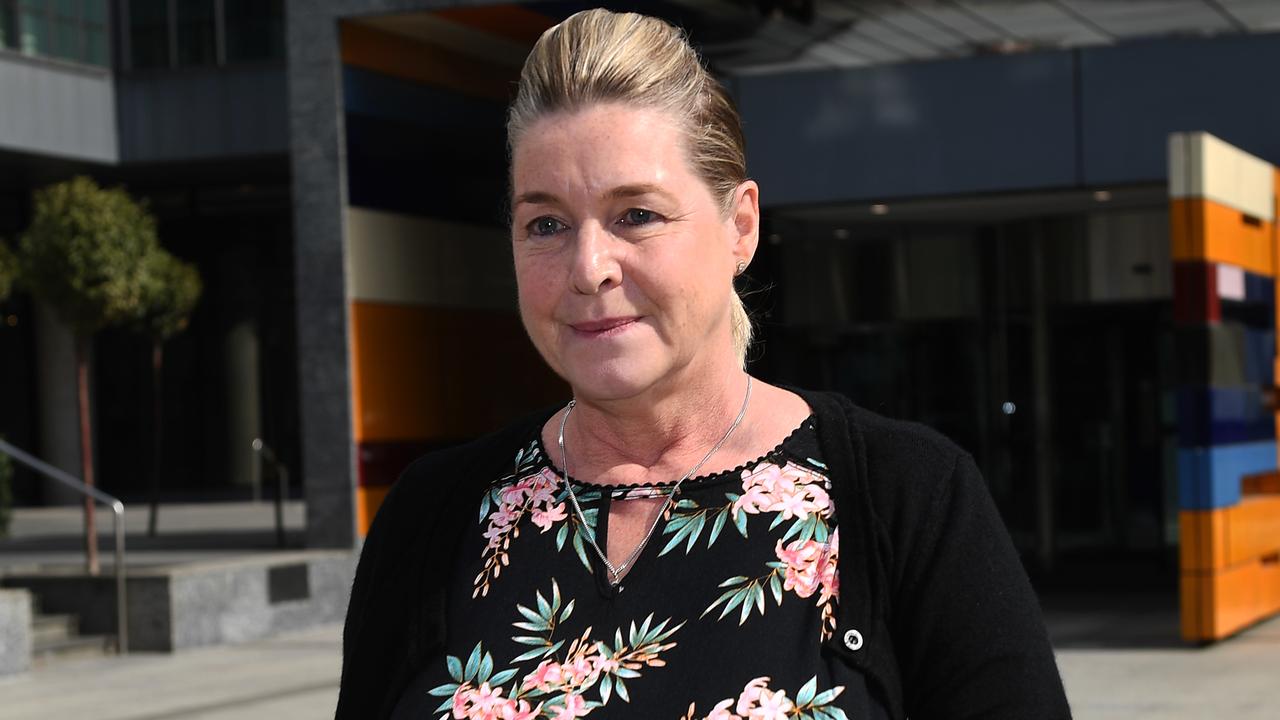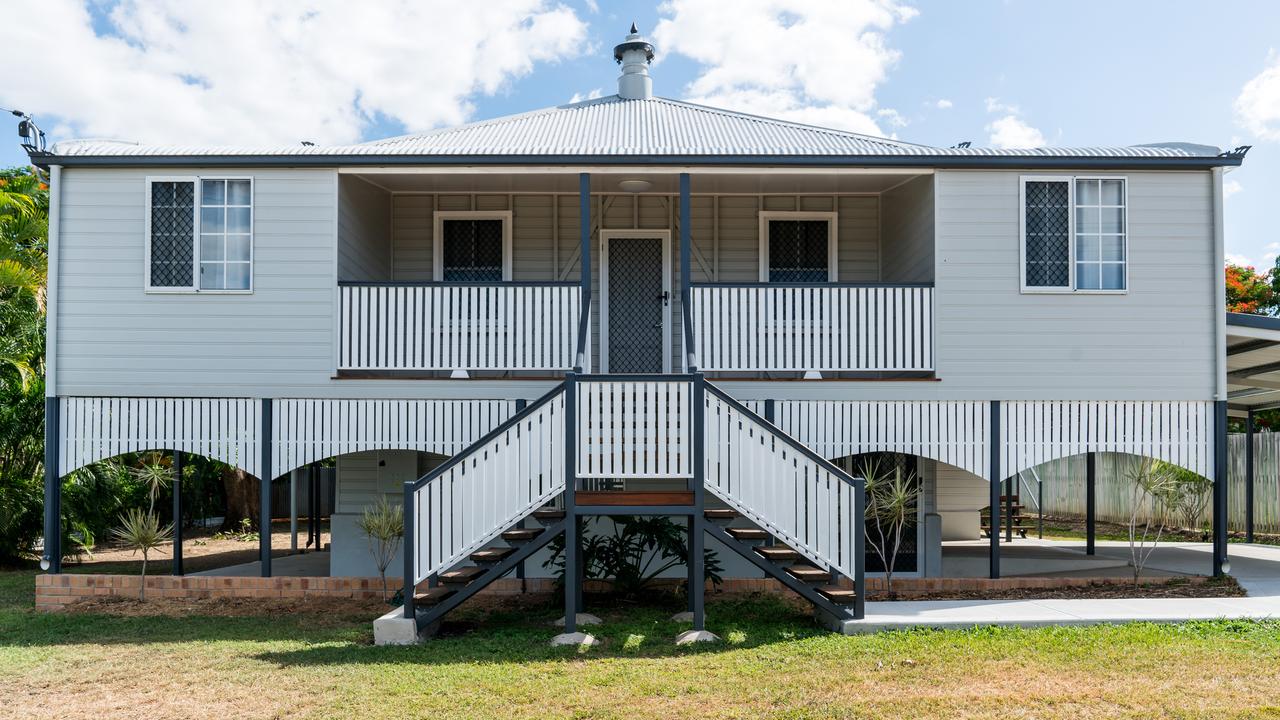Dead Commonwealth Bank clients charged fees among shock revelations of banking behaviour
A COUPLE who lost their home after visiting a financial adviser have told the royal commission their harrowing story.

A COUPLE who lost their home after visiting a financial adviser have shared their harrowing story.
Jacqueline McDowall, who is in her late 50s, told the banking royal commission she and her husband lost their home after trying to use superannuation funds to purchase a bed and breakfast.
She said Westpac senior planner Krish Mahadevan tipped the couple into a self-managed super fund, advising that the couple could take out life insurance of up to $1 million each.
“You’re in the right place. I’m the money man who can lend you $2 million,” he told them.
The decision ended up costing her home and most of her super until being compensated by the bank in 2017.
“I just feel through this horrible situation through the Westpac bank, the advice that we were given, a bank that’s a big bank that I’ve been with for 16 years, for them to do that to their customers is absolutely and utterly disgusting,” the registered nurse said through tears.
“I hope no one ever has to go through it again.”

Westpac confirmed Mahadevan, is still employed by BT Financial, and still provides advice to existing customers.
“Krish told us we could buy an investment property that we could not live in,” Mrs McDowall said breaking down.
“I just feel now after all the time after all the fees and insurance … that all along from the end of it they were just aiming for us to take out an investment property that you can’t live in. I just felt after that, that we had been led up the garden path and had been lied to.”
Michael Wright, an executive in Westpac’s wealth management division BT Finance, said the advice was poor.
“It’s very clear this was not a viable strategy for the McDowalls,” he told the commission.
“I’m sure the McDowalls were passionate and excited about what their future could look like but the reality was it wasn’t viable.
“At that point in time, as professionals, we should have made it very clear this is not viable. It was poor advice.”
The reputations of Australia’s big banks has taken a big hit this week — and it seems even in death you can’t escape their fees.
The banking royal commission has heard Commonwealth Bank advisers charged dead clients for financial advice, in one case for a decade.
A 2015 document for CBA’s Count Financial business shows examples of advisers charging ongoing service fees after clients had died, AAP reports.
One adviser knew a client had died in 2004, but the adviser service fees were still being charged a decade later, the document shows.
“When asked, he said he didn’t know what to do and he had tried to contact the public trustee and had not heard back,” the document noted.
Another customer of a different adviser died in 2007 and contact was made with the client’s wife in 2013 but no action was taken, the royal commission heard on Thursday.
These are just some of the stories coming out of the royal commission this week.
The news has been so bad that Treasurer Scott Morrison to warn law-breakers that their “disturbing” behaviour could enforce jail time.
“That’s how serious these things are,” he said yesterday.
Former deputy prime minister Barnaby Joyce — who opposed the royal commission — has apologised for arguing against it in the past.
“What I have heard is so far beyond disturbing,” he tweeted today.
In the past I argued against a Royal Commission into banking. I was wrong. What I have heard is so far is beyond disturbing.
— Barnaby Joyce (@Barnaby_Joyce) April 18, 2018
Senior executives from both the Commonwealth Bank and AMP were questioned at the royal commission this week.
According to counsel assisting the royal commission Mark Costello, Australia’s largest bank CommBank has charged more fees for no service than any other financial services company in the country.
Last month, Commonwealth Bank chief executive-elect Matt Comyn warned his staff that things “could get ugly” for the bank, but he probably didn’t realise just how ugly.
For example, as the Commonwealth Bank continued to slap fees on to dead customers for advice it wasn’t providing, the problem was noted as, “possible warning to adviser”.
One adviser knew a client had died in 2004, but the adviser service fees were still being charged a decade later, a 2015 document for CBA’s Count Financial business shows.
Commonwealth Bank of Australia: We don’t care if you’re dead.
— Mark Pesce (@mpesce) April 19, 2018
My mother in law discovered this last week. The Commonwealth bank continues to charge him fees long after his death and they are trying to make her pay them. She notified the bank of his death and they admitted to having the notifications while I was present.
— PeterBax (@BaxterPeterba) April 19, 2018
According to The Australian, “one planner’s client had been dead for seven years before the planner contacted his widow, and then took ‘no action’ to fix the continuing charges”.
The adviser was getting about $65 a month in fees in 2014 and 2015.
Meanwhile, the CBA admitted it was the “gold medallist” when it comes to charging customers fees for no good reason,
Linda Elkins from CBA’s wealth management arm Colonial First State was asked: “It would be the gold medallist if [the corporate regulator] was handing out medals for fees for no service, wouldn’t it?”
Elkins simply replied: “Yes.”
The commission heard that over eight years clients at CBA’s Commonwealth Financial Planning, Count Financial and the now-closed BW Financial Planning repeatedly charged fees for financial advice when no service was in fact given.
The CBA took more than two years to tell the Australian Securities and Investments Commission (ASIC) about the charges.
A CBA executive admitted the bank had “no idea what was going on” after a 2012 internal memo advised of the possibility that customers were being overcharged.
Hi. We’re from the Commonwealth Bank and we’re here to help. pic.twitter.com/iIfwa7Ap1n
— Mike Carlton (@MikeCarlton01) April 18, 2018
According to the ABC, the report found: “1050 clients were overcharged at least $700,000 for advice they did not receive because their financial planners had left the business before 2012.
“The report noted 5000 clients could have either been undercharged or overcharged to the tune of $4.3 million.”
Commonwealth Bank has been forced to refund $118.5 million to more than 310,000 customers after charging fees for services they did not receive. That’s more than half of the total $219 million compensation bill owed by the big four banks and AMP.
Meanwhile, earlier this week the royal commission heard that AMP had been charging clients for advice they never received, while its staff had lied to the Australian Securities and Investments Commission.
AMP executive Anthony Regan said the bank had repeatedly lied to the corporate regulator over charging fees for no service after the commission heard of letters, emails and reports showing the company had tried to keep the information quiet.
ASIC yesterday announced it has been investigating AMP’s conduct in relation to “fees for no service” and “false or misleading statements to ASIC”. It said it had received many thousands of documents and undertaken 18 examinations of AMP staff. ASIC is also ensuring that compensation is paid to impacted AMP clients.
ASIC statement on AMP 'fees for no service' https://t.co/MOs42OgoC6
— ASIC Media (@asicmedia) April 18, 2018
Financial Services Minister Kelly O’Dwyer today acknowledged “very disturbing revelations” but Australians need more than words. They need action.
Opposition Leader Bill Shorten said it is clear Prime Minister Malcolm Turnbull “owes Australians an apology” but what Australians will really care about is an apology from the bank and to stop being treated like cash cows.
Under the existing timeline, the commission is due to provide a final report by February 2019.
But the Turnbull government would be open to extending the banking royal commission if it is requested by the man overseeing the inquiry.
— News.com.au has contacted Commonwealth Bank for comment.
— With AAP




